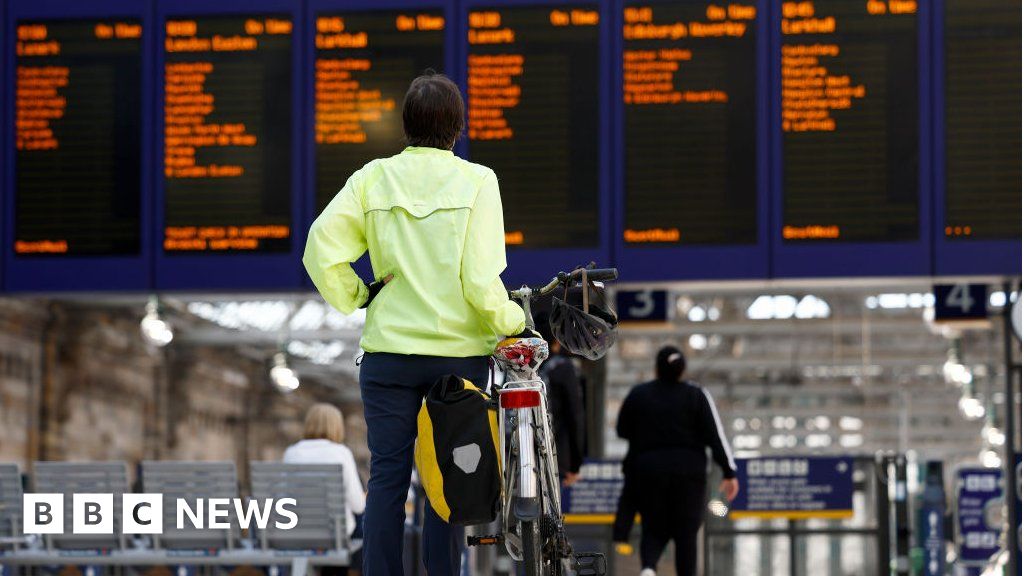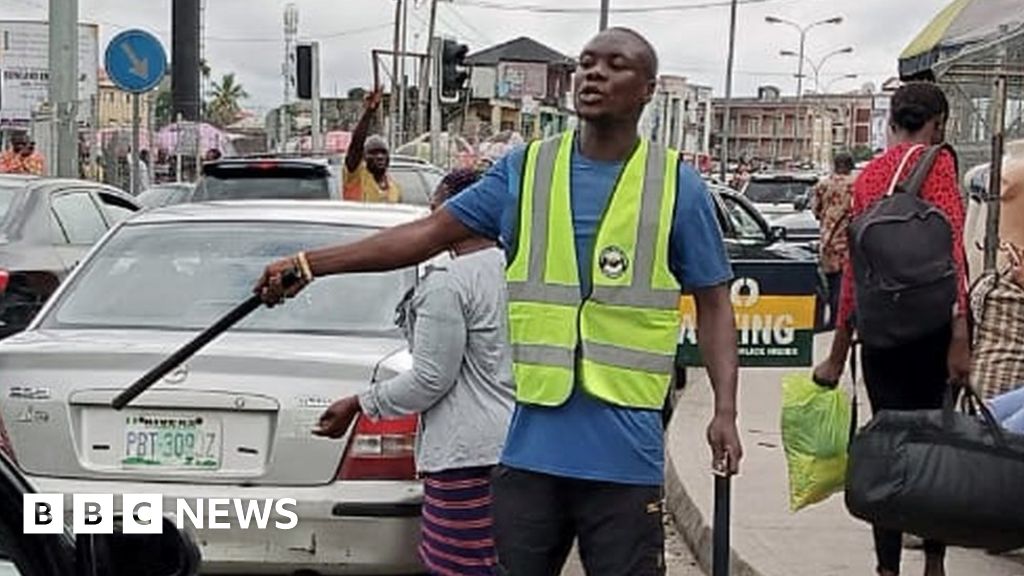Passengers are being warned of fresh rail disruption from Monday as two rail unions take industrial action this week.
Aslef train drivers will not work overtime this week, and RMT members will strike on Thursday and Saturday.
The action is part of a long-running dispute about pay, jobs and conditions that has seen some severe disruption.
Passengers are being advised to check before they travel as service levels will vary across the country.
When is the next industrial action?
Members of Aslef, the train drivers union, are taking industrial action short of a strike, in the form of an overtime ban.
Most train companies rely on drivers working overtime to run their full schedules.
Services at 15 companies based in England will be disrupted from Monday 17 to Saturday 22 July.
Many train operators will reduce their service levels.
When are the next actual strikes and which lines will be affected?
Strikes will be held on Thursday 20, Saturday 22 and Saturday 29 July.
Members of the RMT union will be taking action at 14 rail companies:
- Avanti West Coast
- C2C
- Chiltern Railways
- CrossCountry
- East Midlands Railway
- GTR
- Great Western Railway
- Greater Anglia
- LNER
- Northern Trains
- Southeastern
- South Western Railway
- TransPennine Express
- West Midlands Trains
GTR operates Southern, Thameslink, Great Northern and Gatwick Express.
Greater Anglia includes Stansted Express.
Will some trains still run on strike days?
The RMT says 20,000 of its members, including guards, train managers and station staff, will walk out.
On previous strike days there have been thousands of cancellations, with some lines not operating at all.
On lines where there have been services, they have tended to start later and finish earlier than normal.
Passengers are advised to check with the operator before travelling.
Why have railway workers been on strike?
Unions say any pay offer should reflect the rising cost of living – with the inflation rate only recently having dipped below 10%.
But the rail industry is under pressure to save money, after the pandemic left a hole in its finances.
Bosses say reforms need to be agreed to afford pay increases and modernise the railway.
What about the Tube strikes?
London Underground workers at three unions will strike from Sunday 23 July until Friday 28 July in a long-running dispute about pensions, job cuts and working conditions:
- 23 to 28 July: Members of the RMT will walk out although the union has not yet confirmed which groups of workers will strike on which days, nor whether the action will last for a solid six days
- 26 and 28 July: Aslef drivers will go on strike
- 26 and 28 July: Members of the Unite union who work in engineering, maintenance and management roles will go on strike
How much are rail workers paid?
The average salary of rail workers in 2022 was £45,919, according to the Office for National Statistics (ONS).
If drivers are excluded (because they tend to be members of the Aslef union, not RMT) its estimate is £39,518. However, the RMT union said that figure was too high because it does not include rail cleaning staff.
The ONS says median pay for “train and tram drivers” is just under £59,000.
Although Aslef members tend to be better paid than other rail workers, Mick Whelan, general secretary of the union, told BBC News on 12 May that train drivers “haven’t had a pay rise for four years”. He was just referring to the ones who are taking industrial action.
That’s because a new pay deal has not been reached since their last agreement ended in 2019.
However, Transport Minister Huw Merriman said the pay of train drivers “has gone up by 39% since 2011… the highest increase of any employment group.”
He is right about the 39% increase, but we have not been able to establish whether it’s the highest increase for any employment group. That’s because of changes to the way the figures have been released over the last decade.
What deal have rail workers been offered?
The Rail Delivery Group (RDG), which represents the 14 train companies, made an offer that would have seen rail workers receive a backdated pay rise of 5% for 2022. It would then negotiate reforms ahead of a second year’s pay rise with individual operators.
On 5 May, RMT members voted to extend the strike mandate for another six months.
The Aslef union, meanwhile, has rejected a two-year offer which would see drivers get a backdated pay rise of 4% for 2022 and a 4% increase this year.
Separately, a revised offer from Network Rail was accepted by RMT members on 20 March, ending that dispute.
The union said the offer amounted to an uplift on salaries of between 14.4% for the lowest paid grades to 9.2% for the highest paid.
How much notice do unions have to give?
Unions are obliged to give at least 14 days’ notice of any strike action.
How will the rail strikes affect your journey? What alternative forms of transport are you using? Share your experiences by emailing haveyoursay@bbc.co.uk.
Please include a contact number if you are willing to speak to a BBC journalist. You can also get in touch in the following ways:
If you are reading this page and can’t see the form you will need to visit the mobile version of the BBC website to submit your question or comment or you can email us at HaveYourSay@bbc.co.uk. Please include your name, age and location with any submission.
Credit: Source link








![[LIVE] Crypto News Today: Latest Updates for July 7, 2025 – “Fiat Is Hopeless”: Elon Musk Says ‘America Party’ Will Embrace Bitcoin [LIVE] Crypto News Today: Latest Updates for July 7, 2025 – “Fiat Is Hopeless”: Elon Musk Says ‘America Party’ Will Embrace Bitcoin](https://cimg.co/wp-content/uploads/2025/07/07040208/1751860928-daily-news7.jpg)


